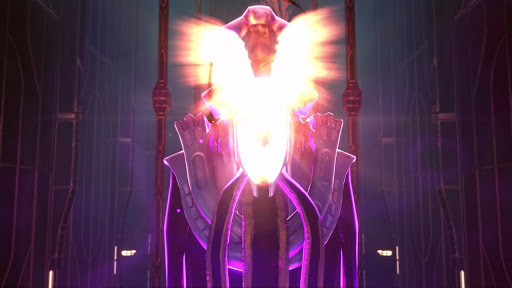How Far Would You Go?
One of the reasons I really liked Sekai Oni is that it asks a question that's a bit unusual for fiction to ask; how far are you willing to go to protect you and yours?
There's tons of fiction where a major question is 'how much are you willing to sacrifice to protect you and yours?' Usually, though, the balance of human life is glossed over, with it being taken as a given that the protagonist(s) will be able to eg chop down all the bad guys as part of protecting their friends. Pacifist protagonists and similar that do wrestle with 'is it okay to kill or otherwise harm other people as part of protecting the ones I care about?' tend to still frame things in self-sacrificial terms, where for example a willingness to kill if it will protect the people they care about is presented as compromising their morals, a sacrifice of something sacred to them. The whole question of 'how do you balance the lives of strangers against the lives of those you care about?' part tends to be glossed over even with pacifist protagonists.
And it's a bit depressing this usually gets glossed over, because it's really something that deserves serious thought. Just dehumanizing other people so any cost to them is worth extracting if it will protect your own people is pretty vile, yet it's an everyday part of many people's routine. Not one they think in such explicit terms, of course, but something so deeply baked in that our fiction almost never thinks to actually ask if it's okay to commit genocide just because the other party struck first, or isn't human, or whatever.
Sekai Oni actually asks that question, and treats it with the gravity it deserves.
And the character being asked of it pleasantly surprised me with not only what their answer is, but how the narrative treats them giving the answer they choose. A lot of narratives are... defensive, I suppose. It's not good enough to pick a position, commit to it, and illustrate it. Oh no, they need to come up with some abstract argument for why their position is 'correct', and... these arguments are quite frequently undermining the position rather than supporting it. Will's response to Calder's nihilism in Days of Ruin is emotional appeal of the most vapid sort, for example, and its vapidity is so frustrating because there's no need for such a 'justification' at all, let alone such a poor one.
Sekai Oni doesn't feel that need, and is stronger for it.
There's tons of fiction where a major question is 'how much are you willing to sacrifice to protect you and yours?' Usually, though, the balance of human life is glossed over, with it being taken as a given that the protagonist(s) will be able to eg chop down all the bad guys as part of protecting their friends. Pacifist protagonists and similar that do wrestle with 'is it okay to kill or otherwise harm other people as part of protecting the ones I care about?' tend to still frame things in self-sacrificial terms, where for example a willingness to kill if it will protect the people they care about is presented as compromising their morals, a sacrifice of something sacred to them. The whole question of 'how do you balance the lives of strangers against the lives of those you care about?' part tends to be glossed over even with pacifist protagonists.
And it's a bit depressing this usually gets glossed over, because it's really something that deserves serious thought. Just dehumanizing other people so any cost to them is worth extracting if it will protect your own people is pretty vile, yet it's an everyday part of many people's routine. Not one they think in such explicit terms, of course, but something so deeply baked in that our fiction almost never thinks to actually ask if it's okay to commit genocide just because the other party struck first, or isn't human, or whatever.
Sekai Oni actually asks that question, and treats it with the gravity it deserves.
And the character being asked of it pleasantly surprised me with not only what their answer is, but how the narrative treats them giving the answer they choose. A lot of narratives are... defensive, I suppose. It's not good enough to pick a position, commit to it, and illustrate it. Oh no, they need to come up with some abstract argument for why their position is 'correct', and... these arguments are quite frequently undermining the position rather than supporting it. Will's response to Calder's nihilism in Days of Ruin is emotional appeal of the most vapid sort, for example, and its vapidity is so frustrating because there's no need for such a 'justification' at all, let alone such a poor one.
Sekai Oni doesn't feel that need, and is stronger for it.





Comments
Post a Comment